Finding reliable proxies is essential for businesses that rely on precision and efficiency in their online operations. Tasks like managing multiple accounts, running marketing campaigns, or gathering competitive data depend heavily on the quality of the proxies in use. Poor-quality proxies can lead to operational disruptions, including blocked accounts, unreliable connections, and wasted resources.
Investing in high-quality proxies ensures consistent performance, better IP reputation, and reduced risks. When evaluating providers, businesses should prioritize measurable factors like session stability, response times, and adherence to ethical practices. This guide will help you navigate the key considerations for selecting proxies that meet your business needs and deliver tangible results.
How to Choose Reliable Proxies?
When selecting reliable proxies, the focus should be on matching proxy features to your specific business needs while ensuring top-notch performance and security. Reliable proxies play a critical role in enabling efficient multi-account management, web scraping, and e-commerce operations without risking detection or bans. Here’s how to make the right choice:
Understand Your Use Case
Start by identifying your primary purpose for using proxies. Whether it’s managing accounts on social platforms, scraping competitive data, or running automated campaigns, knowing your use case ensures you choose proxies optimized for your needs.
Check Proxy Reputation and IP Quality
Reliable proxies use clean IPs that are neither flagged nor blacklisted, ensuring smooth and uninterrupted operations. Choosing a provider that conducts thorough IP quality checks and offers transparency about their proxy pools is essential to avoid issues like account bans or failed tasks. To make the selection process easier, Proxy Review Hub provides in-depth reviews and performance evaluations of top proxy providers, helping you find options that perfectly match your business requirements.
Evaluate Connection Stability and Speed
Speed and uptime are critical for uninterrupted operations. Test proxies for consistent connection speeds and minimal latency to ensure smooth execution of tasks like scraping and ad verification.
Prioritize Diverse and Scalable Proxy Pools
A large, diverse IP pool allows for better rotation and reduces the risk of detection. For tasks requiring scalability, such as managing multiple accounts, ensure the provider offers sufficient IP availability without overlap.
Security and Privacy Features
Reliable proxies should safeguard your data. Look for features like encryption, authentication options, and assurances against data logging to maintain privacy and operational integrity.
Consider Customization Options
Businesses benefit from proxies that offer flexible targeting options, including country, city, and ISP-level filtering. Customizable sticky sessions and rotation settings can further enhance performance.
Choosing the Right Proxy Type for Your Needs
Selecting the appropriate proxy type is a foundational step in building an effective strategy. Different proxies serve distinct purposes, and understanding their strengths and weaknesses ensures optimal performance for your business case. Here’s an overview of the most commonly used proxy types:
Datacenter Proxies
- What They Are: IP addresses generated from servers in data centers.
- Best For: Speed-intensive tasks like accessing public, unprotected websites or managing bulk automated requests.
- Drawbacks: Easily detected by advanced systems and less effective for sensitive use cases requiring non-detectbility.
- Why Choose Them: Budget-friendly and highly efficient for large-scale data collection with minimal security concerns.
Residential Proxies
- What They Are: IPs assigned to real devices by internet service providers.
- Best For: High-stakes tasks like account management, competitive web scraping, and purchasing limited-edition items where undetectability is critical.
- Drawbacks: Higher costs and slower speeds compared to datacenter proxies.
- Why Choose Them: These proxies provide unmatched legitimacy, reducing the risk of detection or bans.
ISP Proxies (Static Residential)
- What They Are: Static IPs from data centers registered with ISPs to appear residential.
- Best For: Consistent identity use cases like managing e-commerce or social media accounts and navigating platforms with strict security protocols.
- Drawbacks: Limited geographical diversity and higher pricing compared to datacenter options.
- Why Choose Them: A perfect balance of speed and reliability with IPs perceived as legitimate residential connections.
Mobile Proxies
- What They Are: IPs originating from mobile carriers and tied to real mobile devices.
- Best For: Mobile app testing, managing social media accounts, and accessing mobile-specific content.
- Drawbacks: Higher costs and more limited availability.
- Why Choose Them: Nearly impossible to detect, offering the highest levels of trust and authenticity for mobile-based tasks.
Rotating Residential Proxies
- What They Are: Dynamic IPs that change with each request or session, coming from a pool of residential devices.
- Best For: Large-scale web scraping, ad verification, and accessing location-sensitive content without raising red flags.
- Drawbacks: Rotating IPs can occasionally disrupt long-session tasks.
- Why Choose Them: Enhanced diversity and location flexibility make them ideal for high-volume operations.
Choosing Wisely
Each proxy type serves unique needs, so the right choice depends on your business goals. Consider factors like budget, detection risks, speed, and geographical requirements to ensure the best alignment between your strategy and proxy setup.
Conclusion
Choosing reliable proxies is pivotal for businesses aiming to enhance their online operations and achieve consistent success. By focusing on your specific use cases, evaluating proxy performance, and ensuring compatibility with your goals, you can avoid common pitfalls like IP bans and operational disruptions. Reliable proxies not only improve efficiency but also safeguard your operations, enabling you to scale with confidence and maintain a competitive edge.
FAQs
What are the main factors to consider when choosing reliable proxies?
Key factors include IP quality, connection stability, speed, scalability, security features, and alignment with your specific use case, such as account management or data scraping.
How do I know if a proxy provider offers high-quality IPs?
Check for providers that offer IP history reports, clean IP pools, and ensure their IPs aren’t flagged or blacklisted. Tools like IP scoring and reviews from trusted sources can also help.
Which proxy type is best for managing multiple accounts on social media?
Residential or ISP proxies are ideal due to their high authenticity and static options, minimizing the risk of detection and bans.
Why is connection stability important in proxy selection?
Stable connections ensure seamless operations, especially for tasks like scraping, ad verification, or running automated campaigns, where interruptions can lead to errors or inefficiency.
Can proxies help with geographic targeting for business operations?
Yes, proxies with precise geo-targeting options enable businesses to simulate user behavior from specific locations, access localized content, and ensure compliance with regional restrictions.

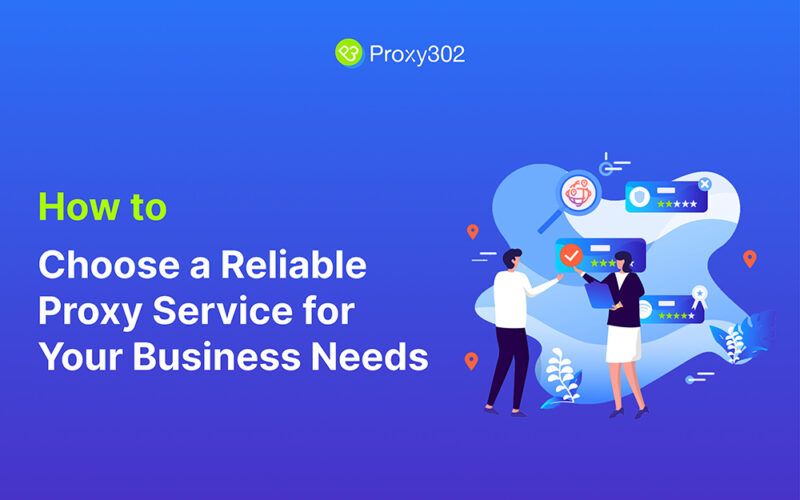
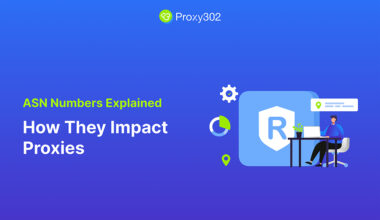
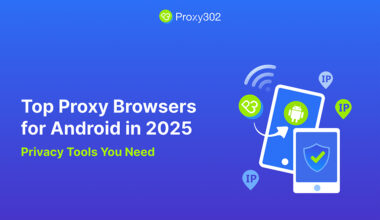
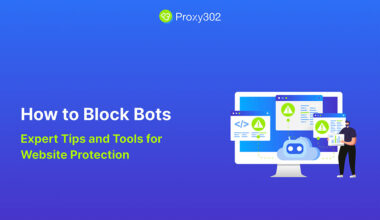
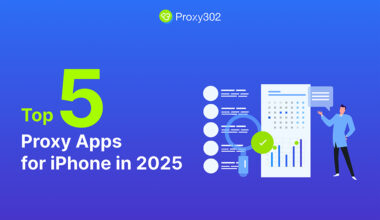
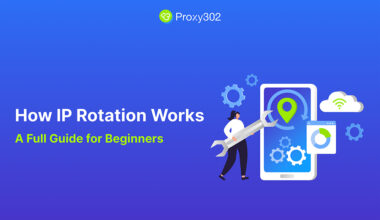
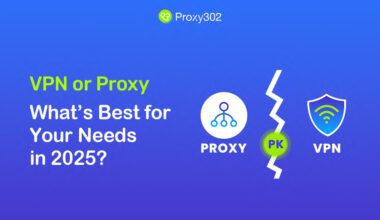
4 comments
Your article helped me a lot, is there any more related content? Thanks!
Can you be more specific about the content of your article? After reading it, I still have some doubts. Hope you can help me.
Your article helped me a lot, is there any more related content? Thanks!
Thank you for your sharing. I am worried that I lack creative ideas. It is your article that makes me full of hope. Thank you. But, I have a question, can you help me?